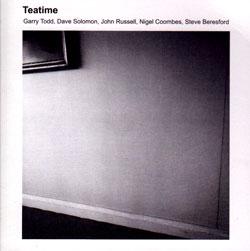
Analog recordings from this quintet of European Free Improvisers taken from their 1975 Incus LP, and a previously unissued recording live at London's Little Theatre Club, 1973.
Out of Stock
Quantity in Basket: None
Log In to use our Wish List
Shipping Weight: 3.00 units
Sample The Album:
Garry Todd-tenor saxophone
Nigel Coombes-violin and low grade electronics
Steve Beresford-piano and toys
John Russell-electric guitars
Dave Solomon-percussion
Click an artist name above to see in-stock items for that artist.
UPC: 5030243500925
Label: Emanem
Catalog ID: 5009
Squidco Product Code: 13822
Format: CD
Condition: New
Released: 2010
Country: Great Britain
Packaging: Cardstock 3 page foldover
Tracks 1-11 are analogue gig recordings by Martin Davidson. Track 12 is an analougue gig recording by Dave Solomon.
1: Solomon (+ Beresford & Russell) 1974 August 27; 2 - 5: Coombes, Beresford, Russell, Solomon 1975 January 14; 6: Solomon 1974 August 27; 7 - 10: Todd, Beresford, Russell, Solomon 1975 February 25; 11: Todd & Russell 1975 April 22; 12: Russell & Solomon late 1973
Excerpts from sleeve notes:
"I got interested in the London improv scene in 1970 at the age of 17 after seeing a gig with Evan Parker, Derek Bailey and Han Bennink and participating in activities led by John Stevens (who I later visited for drum lessons) and Trevor Watts. I attended the concerts given by the Musicians' Co-operative at Ronnie Scott's and was inspired to change the sound of and expand the modern jazz drum kit by drummer/percussionists like Terry Day, Paul Lytton, Tony Oxley, Jamie Muir, Frank Perry and visiting Europeans. From 1973, I started doing gigs at the Little Theatre Club and a whole crowd of us 'second generation' baby boomers became virtually resident there in the last year or so of that venue's life - the duo, included here, of John (Russell) and me was from that period.
After the Theatre Club folded, John (Russell) found a venue at the Artists' Meeting Place in Covent Garden. There was also a regular Monday night at the Engineer and regular Musicians' Co-op concerts at the Unity Theatre in the St Pancras area. It was here in 1974 and 1975 where Martin Davidson recorded the material for Teatime.
I'd been used to playing in various combinations of the musicians on this disc - for example, I gigged for a while in a duo with Steve called 'Sorry' - so it seemed natural for us all to make a record together. After making the recordings for Teatime, I remember gigs at the ICA in Pall Mall and a one-off 'new faces' type concert at the Wigmore Hall. All this happened in-between the folding of the Little Theatre Club and the subsequent founding of the London Musicians' Collective around 1976, a period that tends to be overlooked in the historical accounts of this music.
DAVE SOLOMON (2010)
My memories of the Unity Theatre are patchy: just little moments, really. I remember that the bar sold one sort of food - bread and butter pudding. Luckily, it was excellent. Evan Parker and Paul Lytton played there and deeply impressed me. Because there were two pianos, my brother Pete and I played a trio with Derek Bailey. A duo of Dave Solomon and Nigel Coombes ended with a long solo by Nigel. At a very salient point, Dave said, quite loudly, 'I seem to have finished before you.'
STEVE BERESFORD (2010)
At a Musicians Co-Op concert I met an old school friend called Robin Musgrove who introduced me to fellow John Stevens pupil Dave Solomon. My first improvised gig was in a duo with Dave at The Little Theatre Club where, over about a year, I met and played with Nigel and Steve and others. It was a period of trying things out. Many nights spent drinking tea and listening to music, discussing likes and dislikes. Derek Bailey said he got his idea to form Company from the way we kept changing personnel from gig to gig.
By the time we had gravitated to the Unity Theatre, and Dave, Steve and I had become members of the Musicians Co-Op, Garry had moved to London, and I had started organising concerts at the Artists Meeting Place in Covent Garden and elsewhere. When Evan and Derek offered us the opportunity to make an LP, Martin Davidson recorded a number of performances at the Unity Theatre and we had (as I remember) the long and laborious task of choosing what to put on the LP.
One particular record we enjoyed was ICP 005 with Derek Bailey, John Tchicai, Han Bennink and Misha Mengelberg, and we used Misha's abrupt editing technique on Teatime. We simply listened to a bit we liked and then got the razor blade out when we found it was becoming boring. It seemed to fit perfectly the music we were making back then.
JOHN RUSSELL (2010)
I moved to London from Leeds in 1974 to try to become part of the free music scene, which struck me as radical, new and exciting, as well as being good to listen to. My father was a jazz and dance band musician and a close friend of Derek Bailey, and it was probably this connection that brought free music to my attention in the late '60s. The music at the time, was vital and inspirational.
Within a week or two of moving to London, I was part of the very open and friendly burgeoning free scene, playing a kind of music where it seemed to me that anything was possible. I rehearsed with Dave Solomon and John Russell at their flat in Belsize Park, and went on to work in a trio with John and drummer Roy Ashbury.
I was in a duo with John for a while during and after the period when Teatime was made, and, in 1975, I started to do solo tenor sax concerts on a regular basis. After one such solo at the Notre Dame Hall, Nigel Coombes and I hooked up to form a duo and, early in 1976, I played in the first ever Company gig, at the Soho Poly with Derek Bailey (of course), Barry Guy and Steve Beresford (Dave and John sat in at the end as I remember). This was a very exciting time. I was playing regularly, sometimes two or three times a week at the many and varied venues that existed then. The Unity Theatre, near King's Cross, where gigs were run by the London Musicians' Co-operative, and where Teatime was recorded, was also a very good venue until it burnt down late in 1975.
This is just a rough sketch of what was happening circa 1974-6, but it is important to point out that the way we so-called 'second generation' improvisers worked was very ad hoc - there was a sort of loose pool of us from which various permutations would spontaneously develop, sometimes just for one or two gigs, and it seemed to us to be a very productive way of playing (a way that apparently influenced Derek Bailey to form Company).
GARRY TODD (2010)
In an obscure area close to Mornington Crescent and St Pancras, Teatime was recorded in the Unity Theatre. I think this was the first of several times I performed at the Unity before its closure due to fire on 8th November 1975. From what I remember, there were no specific Teatime sessions. The compilation, I believe, was made from recordings of four separate gigs and issued by Incus to represent 'second generation artists'. Although apprehensive about the release of Teatime in 1975, listening to this music 34 years on, I now believe it a good representation of how improvisers of that generation were making music during the 1970s. Because of there being more venues available at that time we could experiment with varied casual combinations of many improvisers including the Teatimers and others.
NIGEL COOMBES (2010)
The Unity Theatre was a left-wing theatre club that had been based in a former chapel between King's Cross St Pancras and Mornington Crescent since 1937. The theatre did not function every day of the week, so the Musicians' Co-operative was able to use the space every Tuesday.
Incus decided to issue a record of some of the 'second generation' improvisers, and asked me to record some of their work. I can't remember if I recorded more than the four gigs that the musicians chose to use on the LP. Only two brief percussion codas were used from the earliest date.
The way the musicians treated the two quartet recordings resulted in my introduction to what I call brutal editing. I found it very shocking at the time (although Lol Coxhill had done something similar). Conversely, the duo was a complete performance.
The Wigmore Hall concert referred to above was organised by Albion Music run by Janice Christianson, who was Derek Bailey's partner throughout the 1970s. It was planned to feature eleven new improvisers, but one (Simon Mayo) was ill. Apart from the five Teatimers, the other performers in the four groups were Roy Ashbury, Peter Cusack, Terry Day, Herman Hauge and Roger Smith. (Alas, it was unrecorded.)
In addition to the contents of the Teatime LP, this CD also contains a previously unissued cassette recording from that period. This slightly earlier duo of John and Dave may even appeal to critics who aren't generally keen on free improvisation.
The LP marked the published recording debut of all five musicians (except that Steve played a little toy trumpet on a Trevor Wishart LP released in 1973). Some slightly earlier recordings have subsequently been issued - for instance, Nigel, John and Dave are on the 1973 recordings by the Spontaneous Music Orchestra issued as MOUTHPIECE on Emanem 4039. However, Teatime remains the earliest example of them creating their own music - five friends with a common love of this music who wanted to be a part of it."-Martin Davidson (2010), Emanem
Excerpts from reviews:
"'Five friends with a common love of this music who wanted to be a part of it' sums up the performers on this very welcome reissue of spunky and anarchic mid-1970s free improvisation. When Teatime initially appeared, the 15th LP release on Derek Bailey and Evan Parker's Incus label, it seemed like an endorsement of emerging young guns by the elders of the London scene. An earlier Incus album, BALANCE, had featured representatives of the so-called second generation, including brilliant violinist Phil Wachsmann, but Teatime differs markedly in mood and manner to that set of poised chamber improvisations. BALANCE is about sensitive interplay, nuance and close-knit subtlety. Teatime is rowdy, unruly, funny and melodramatic. BALANCE is concerned with finely crafted coherence. Teatime is about performance, participation and boisterous congeniality.
There's no trace on Teatime of the funk or blues archly suggested by the titles, but at a time when free music - despite declared intentions - was starting to codify its own terms and taboos, these younger musicians offered a more porous sense of what the music might involve. The new, evolving language could accommodate impurities.
In the various combinations of players captured on Teatime, John Russell, who could sound introverted in those days, is wonderfully spiky and textural on electric guitar, although still lingering close to the protective shade of Derek Bailey's influence. Garry Todd plays gnarly tenor, terse and emphatic; Fire Music stiffened with millstone grit. Nigel Coombes is discreet and versatile, adding some fine lines, sharpness and savour. For me, though, Solomon's punchy, choleric approach and Beresford's exhibitionist absurdity remain the rogue elements on Teatime, setting it apart in 1975 and keeping it off the well-beaten track today.
In a mid-70s interview with Kenneth Ansell, Beresford said, 'I can see exactly why Barry Guy, Derek, Evan and John Stevens - in fact nearly all the first generation - see it in terms of developing a technique on one instrument so that you can be spontaneous. But that's not what I want to do.' The older generation embraced elements of humour, if only to differentiate their approach from the earnest sobriety of the academic avant garde. But Beresford made musical jokes, visual gags and deliberate silliness integral components of his performances.
At gigs in those days, Solomon, darksuited and looking as though he'd had a shitty day at some desk job, would scatter his kit on the floor and set about it with cathartic intensity. Beresford, with the demeanour variously of a performance artist, music hall turn or character from The Beano would hammer tinny notes from a toy piano, wring squeals and farts from a balloon or upturn little canisters making bird and animal sounds. On full-scale piano, he'd throw some Romantic pastiche or snatch of cheesy 1930s ballad into the mix along with his own quirky take on Cecil Taylor or post-Webernian abstraction.
Beresford's affinity with the Dutch old masters - Han Bennink and Misha Mengelberg - is unmistakable. Their influence can also be heard in the abrupt edits that occur on Teatime - notably on track seven where, after only 54 seconds, proceedings are brutally terminated just as they seem to be coming together. For all its vigour, rough and tumble and disruption, Teatime remains a thoroughly friendly listen. As Beresford said of the music in his interview with Ansell, 'If it's going to be interesting I think it has to keep elements of a fairly intimate relationship with the audience.' Teatime is still interesting, and it's good to know that all five friends are still out there improvising."-Julian Cowley - The Wire 2010
Artist Biographies
• Show Bio for Steve Beresford "Steve Beresford (born 1950) is a British musician who graduated from the University of York. He has played a variety of instruments, including piano, electronics, trumpet, euphonium, bass guitar and a wide variety of toy instruments, such as the toy piano. He has also played a wide range of music. He is probably best known for free improvisation, but has also written music for film and television and has been involved with a number of pop music groups. Beresford played in Derek Bailey's Company events and in the groups Alterations with David Toop, Terry Day and Peter Cusack, and the Three Pullovers with Nigel Coombes and Roger Smith. He was also a member with Gavin Bryars and Brian Eno of the Portsmouth Sinfonia. Beresford has continued to play free improvisation with a number of prominent musicians, including Evan Parker, Lol Coxhill, John Zorn, and Han Bennink. He has collaborated extensively with Swiss-American artist/musician Christian Marclay and is an active member of the long-standing London Improvisers Orchestra. From 2010 he performed various pieces by John Cage, including Indeterminacy with Tania Chen and comedian Stewart Lee, and a performance with Ilan Volkov at The BBC Proms 2012 at The Royal Albert Hall in London. He has also worked with a number of popular musicians, including Ray Davis, The Slits, Frank Chickens, Ted Milton and The Flying Lizards. In 2015 he performed a duoproject with the upcoming Norwegian singer Natalie Sandtorv at the Blow Out! festival in Oslo, Norway. He was awarded a Paul Hamlyn Award for Artists in 2012. He is a senior lecturer on the Commercial Music course at University of Westminster. Beresford's music and his teachings have inspired the musical community in the UK for over a decade. British songwriter and performer Katy Carr cites Steve Beresford's lectures on musical themes associated with Free improvisation, Experimental music, John Cage, musique concrète, Diamanda Galás and The Slits as a source of initial inspiration with regards to the creation of her debut album, Screwing Lies released in 2001." ^ Hide Bio for Steve Beresford • Show Bio for John Russell "John Russell got his first guitar in 1965 while living in Kent and began to play in and around London from 1971 onwards. An early involvement with the emerging free improvisation scene (from 1972) followed, seeing him play in such places as The Little Theatre Club, Ronnie Scott's, The Institute of Contemporary Arts, The Musicians' Co-Op and the London Musicians' Collective. From 1974 his work extended into teaching, broadcasts (radio and television) and touring in the United Kingdom and, ever extensively, in other countries around the world . He has played with many of the world's leading improvisers and his work can be heard on over 50 CDs and albums. In 1981, he founded QUAQUA, a large bank of improvisers put together in different combinations for specific projects and, in 1991, he started MOPOMOSO which has become the UK's longest running concert series featuring mainly improvised music." ^ Hide Bio for John Russell
11/29/2024
Have a better biography or biography source? Please Contact Us so that we can update this biography.
11/29/2024
Have a better biography or biography source? Please Contact Us so that we can update this biography.
Track Listing:
1. Irritating Tapping 1:33
2. European Improvised Music Sho' 'Nuff Turns Me On -part 1 8:38
3. European Improvised Music Sho' 'Nuff Turns Me On -part 2 1:42
4. European Improvised Music Sho' 'Nuff Turns Me On -part 3 3:36
5. European Improvised Music Sho' 'Nuff Turns Me On -part 4 7:58
6. Deadbeat 0:38
7. I Didn't Get Up This Morning -part 1 0:56
8. I Didn't Get Up This Morning -part 2 4:29
9. I Didn't Get Up This Morning -part 3 2:12
10. I Didn't Get Up This Morning -part 4 2:38
11. Graham Shows His Teeth 11:24
12. Lo-fi 6:50
EMANEM & psi
Improvised Music
Jazz
European Improvisation and Experimental Forms
London & UK Improv & Related Scenes
Quintet Recordings
Search for other titles on the label:
Emanem.



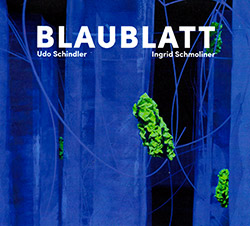

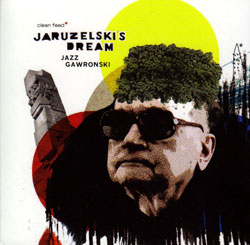
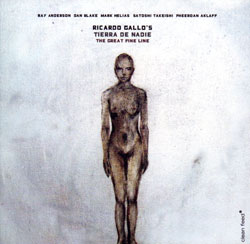
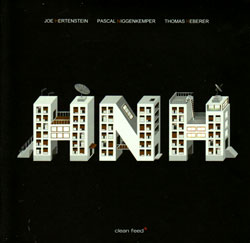
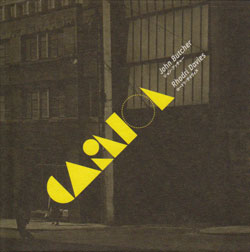
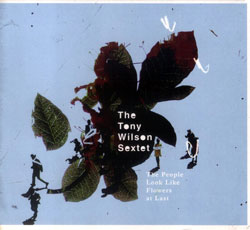




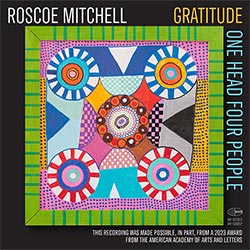
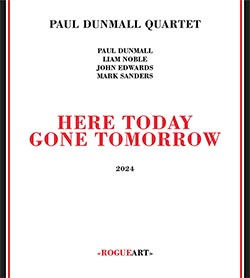
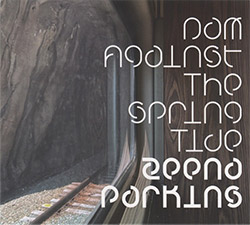
![Weston, Matt: Communism Has Appeared On The Scene [VINYL 2 LPs]](https://www.teuthida.com/productImages/misc4/35546.jpg)
![Coleman, Steve & Five Elements: PolyTropos / Of Many Turns [2 CDs]](https://www.teuthida.com/productImages/misc4/35476.jpg)
![Sorey, Tyshawn (w/ Diehl / Ragahavan): The Susceptible Now [DOUBLE VINYL]](https://www.teuthida.com/productImages/misc4/35477.jpg)


![John Coltrane Quartet (Coltrane / Tyner / Garrison / Jones): Impressions From Graz 1962, Revisited [2 CDs]](https://www.teuthida.com/productImages/misc4/35495.jpg)

![Guy, Barry / Ken Vandermark: Occasional Poems [2 CDs]](https://www.teuthida.com/productImages/misc4/34849.jpg)
![Novoa / Carter / Mela Trio: Vol.1 [VINYL]](https://www.teuthida.com/productImages/misc4/35236.jpg)


![Elephant9 : Mythical River [VINYL]](https://www.teuthida.com/productImages/misc4/34624.jpg)
![Evans, Peter (Evans / Eldh / Black): Extra [VINYL]](https://www.teuthida.com/productImages/misc4/35279.jpg)

![McPhee, Joe: Straight Up, Without Wings [BOOK]](https://www.teuthida.com/productImages/misc4/35454.jpg)
![Jeck, Philip: rpm [2 CDs]](https://www.teuthida.com/productImages/misc4/35455.jpg)









![Barker / Parker / Irabagon: Bakunawa [VINYL]](https://www.teuthida.com/productImages/misc4/35533.jpg)




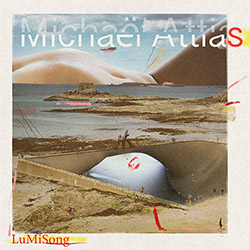
![Blaser, Samuel / Marc Ducret / Peter Bruun: Dark Was The Night, Cold Was The Ground [VINYL 10-inch]](https://www.teuthida.com/productImages/misc4/35492.jpg)






![Warren, Kenny (Warren / Hoffman / Ellman): Sweet World [VINYL]](https://www.teuthida.com/productImages/misc4/35451.jpg)




![Blake, Ran / Dave Knife Fabris: Live Amsterdam 2006, First Visit [CD + POSTCARDS]](https://www.teuthida.com/productImages/misc4/35275.jpg)




![DNS: Taking Big Bites Of The Khandas Three Cafes Deep [2 CDs]](https://www.teuthida.com/productImages/misc4/35334.jpg)




![Cleaver, Gerald: The Process [VINYL]](https://www.teuthida.com/productImages/misc4/34966.jpg)




![Alva Noto: HYbr:ID II [VINYL 2 LPs]](https://www.teuthida.com/productImages/misc4/35201.jpg)

![Baron, Derek / Luke Martin: Distinct and Concealed [CASSETTE + DOWNLOAD]](https://www.teuthida.com/productImages/misc4/35079.jpg)

![Lyle, Erica Dawn : Colonial Motels [CASSETTE + DOWNLOAD]](https://www.teuthida.com/productImages/misc4/35080.jpg)









![Sanna, Claudio: Compositori Sardi Contemporanei II [2 CDs]](https://www.teuthida.com/productImages/misc4/35317.jpg)







![Zurria, Manuel: Fame di Vento [3 CDs]](https://www.teuthida.com/productImages/misc4/35167.jpg)

![Granberg, Magnus / Nattens Inbrott / Skogen: Holde Traume, Kehret Wieder! [2 CDs]](https://www.teuthida.com/productImages/misc4/35038.jpg)
![Frey, Jurg: Outermost Melodie [2 CDs]](https://www.teuthida.com/productImages/misc4/35039.jpg)

![Pavone, Jessica: Reverse Bloom [VINYL]](https://www.teuthida.com/productImages/misc4/34895.jpg)




![Modney (Modney / Wooley / Gentile / Roberts / Pluta / Symthe / ...): Ascending Primes [2 CDs]](https://www.teuthida.com/productImages/misc4/34852.jpg)







![Elephant9 with Terje Rypdal: Catching Fire [VINYL 2 LPs]](https://www.teuthida.com/productImages/misc4/35355.jpg)
![Deerlady (Obomsawin, Mali / Magdalena Abrego): Greatest Hits [VINYL]](https://www.teuthida.com/productImages/misc4/34876.jpg)




![Haino, Keiji: Black Blues [2 CDs]](https://www.teuthida.com/productImages/misc4/35109.jpg)



![Surplus 1980: Illusion of Consistency [CD]](https://www.teuthida.com/productImages/misc4/35069.jpg)
![Staiano, Moe: Away Towards the Light [VINYL + DOWNLOAD]](https://www.teuthida.com/productImages/misc4/35037.jpg)



![Caveira (Gomes / Sousa / Abras / Ferrandini): Ficar Vivo [VINYL]](https://www.teuthida.com/productImages/misc4/34643.jpg)
![Gregg, J. J. / David Van Auken: Lunar Prairie [CD w/ DOWNLOAD]](https://www.teuthida.com/productImages/misc4/34611.jpg)

![Coultrain: Mundus [VINYL]](https://www.teuthida.com/productImages/misc4/32439.jpg)
![Mattin: Songbook #6 [VINYL]](https://www.teuthida.com/productImages/misc4/27317.jpg)
![Punkappella: Wake Up [7-inch VINYL]](https://www.teuthida.com/productImages/misc4/17519.jpg)
![Residents, The: WARNING: UNiNC.: Live And Experimental Recordings 1971-1972 [VINYL 2 LPs]](https://www.teuthida.com/productImages/misc4/31521.jpg)
![Coultrain: Phantasmagoria [VINYL]](https://www.teuthida.com/productImages/misc4/30142.jpg)
![Lennon, Sean Ono: Asterisms [VINYL]](https://www.teuthida.com/productImages/misc4/34517.jpg)

![Coley, Byron: Dating Tips for Touring Bands [VINYL]](https://www.teuthida.com/productImages/misc4/17906.jpg)

![Lost Kisses: My Life is Sad & Funny [DVD]](https://www.teuthida.com/productImages/misc4/lostKissesDVD.jpg)